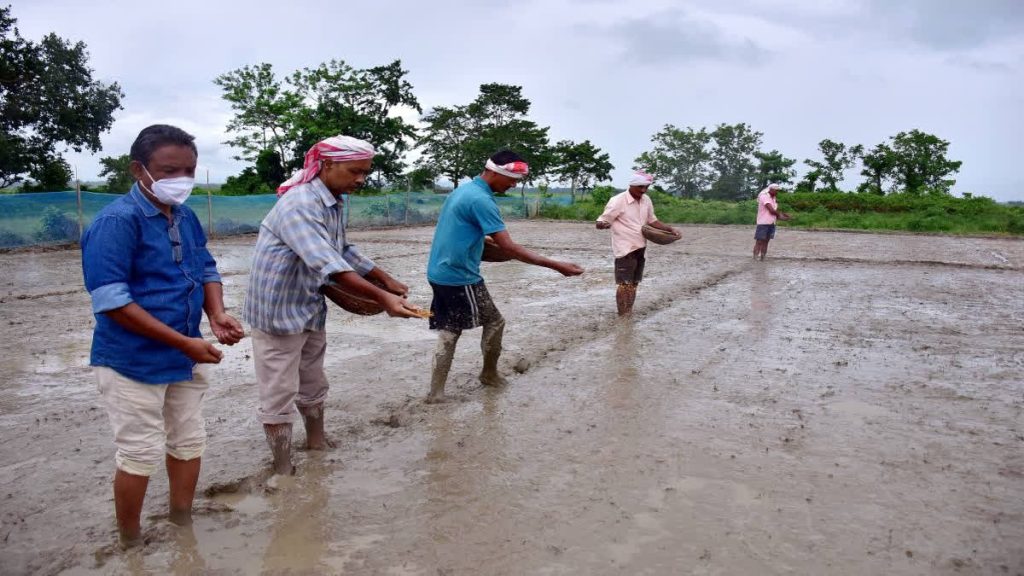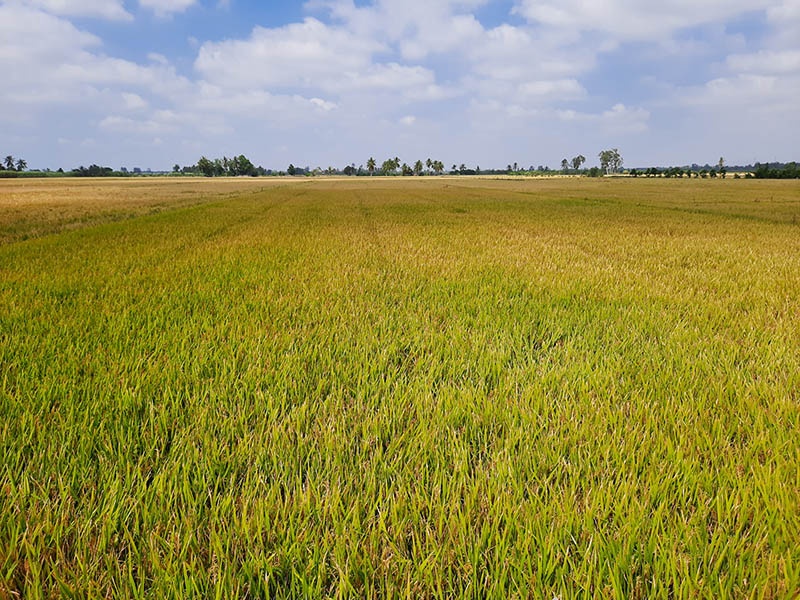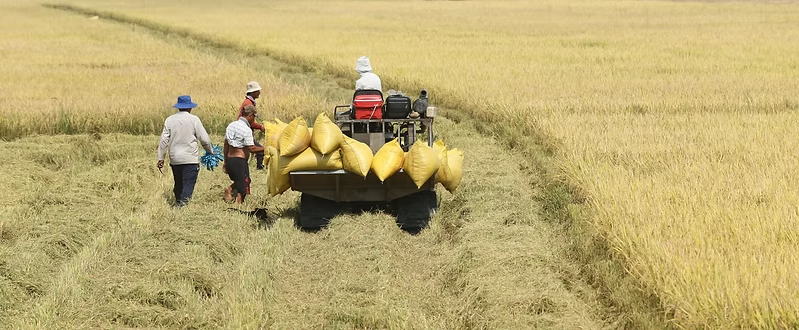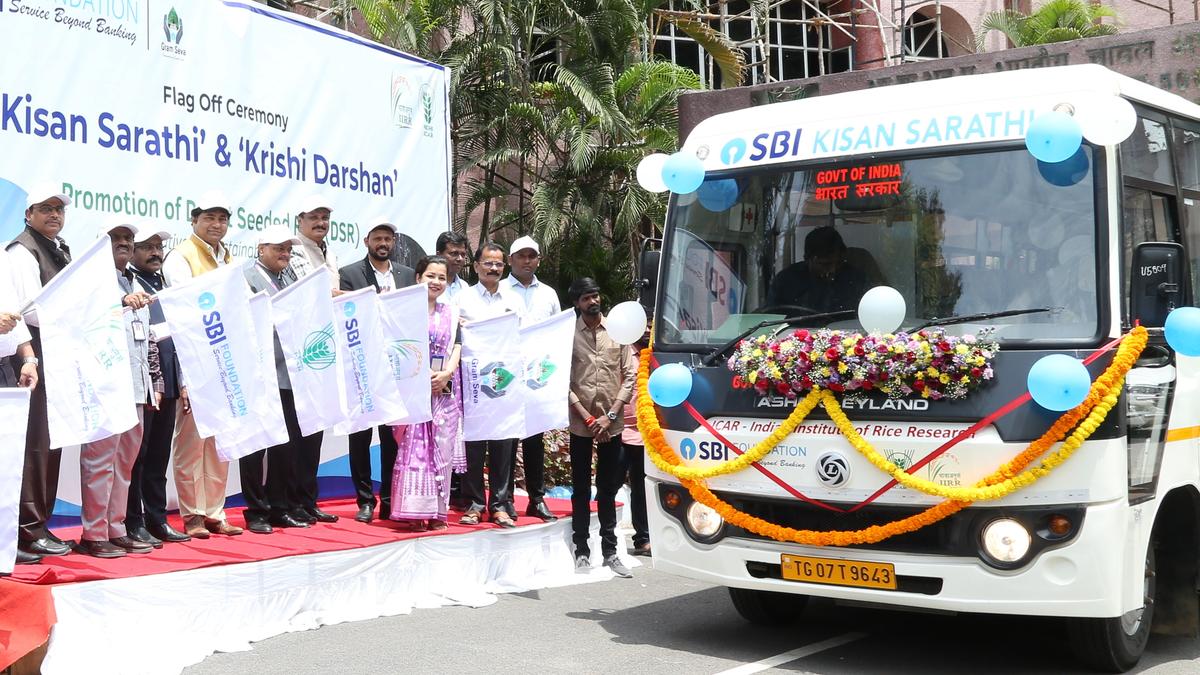Tags
Direct Seeding Rice Reduces Water Usage Compared To Traditional Flooding Methods
Direct Seeding Rice can save about 33 per cent of the water requirement making it a sustainable choice, particularly in water-scarce regions. This method helps to deal with depleting groundwater table, labour scarcity for transplanting of rice and emission of greenhouse gas under transplanted flooded conditions issues.

File photo of labourers scattering seeds for rice cultivation in a field in Assam’s Nagaon (ANI Photo)
New Delhi: Direct Seeding Rice (DSR) reduces water usage significantly compared to traditional flooding methods. This process saves around 33 per cent of the total water requirement making it a sustainable choice, particularly in water-scarce regions.
PUSA has developed two varieties of rice PUSA Basmati 1979 and Basmati 1985 tolerant to imazethapyr 10 per cent sl for DSR cultivation, as per the Indian Agricultural Research Institute (IARI).
Highlighting the major concerns in rice cultivation in North Western India, Dr Ashok Kumar Singh, Director, IARI, New Delhi said, “DSR can address depleting ground water table, labour scarcity for transplanting of rice and emission of greenhouse gas, methane under transplanted flooded condition issues. It reduces water usage significantly compared to the traditional flooding method due to no continuous flooding, targeted water application, lower percolation losses, and decreased evaporation.”
DSR can save about 33 per cent of the water requirement making it a sustainable choice, particularly in water-scarce regions. However, weeds are a major problem under DSR which needs to be addressed to ensure the success of DSR.
To deal with weeds issue, concerted research at ICAR-IARI, Delhi has led to the development of two RobiNOweed Basmati rice varieties, Pusa Basmati 1979 and Pusa Basmati 1985 which are the first Non-GM (genetically modified) herbicide tolerant Basmati rice varieties to Imazethapyr 10 per cent sl to be released for commercial cultivation in India, the official said.
Dr Singh elaborated extensively on the package of practices tailored for these PUSA Basmati 1979 and Basmati 1985 – two rice varieties when cultivated under DSR method.
“The importance of adopting necessary precautions for effective weed management in these crops. Given their tolerance to the broad-spectrum herbicide Imazethapyr 10 per cent sl, these varieties are poised to revolutionise weed control in DSR, thereby streamlining the cost of Basmati rice cultivation.” Dr Singh added.
These varieties not only reduce the labour-intensive processes associated with the weeding but also mitigate the environmental impact of traditional rice cultivation methods. This underscores their potential to contribute significantly to sustainable agriculture practices and the overall well-being of the agricultural ecosystem.
Underscoring the importance of these variants, Dr P.K. Singh, Commissioner of Agriculture at the Ministry of Agriculture and Farmers Welfare, said, “DSR saves the water following which we can save water and get increasing yield with better climate resilience.”
Notably, IARI Basmati rice varieties hold a staggering 95 per cent share in the country’s total Basmati rice exports, which amounts to a whopping 51,000 crores, as per the IARI.
https://www.etvbharat.com/en/!bharat/dsr-reduces-water-usage-compared-to-traditional-flooding-methods-enn24052306195Published Date: May 23, 2024






